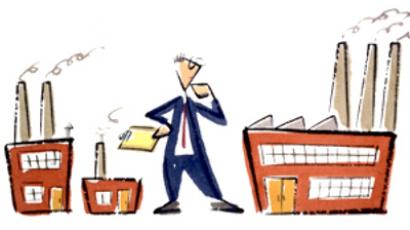Special economic zones lure United Aircraft Corporation
Russia's vast aviation holding will shift production to Russia's new low-tax territories, with the head of the agency for special Economic Zones expecting guarantees to attract more investors.
Singapore's free port hass made the small state the world's fifth richest. It now advises Russia for the largest Special Economic Zone scheme on the planet. 13 sites already exist including one for automakers Isuzu and Fiat. The project's head, Andrey Alpatov says there are 3 clear reasons he is expecting at least $20 billion in investment.
“First we build the infrastructure for free. Second you pay no import duties. Thirdly our profit, land and other taxes are lower.”
Tuesday's signing of Russia's largest conglomerate makes the zones key to the economy. At Ulyanovsk, the United Aircraft Corporation will make parts for civilian and fighter planes.
Zhukovsky will pool training and engineering for Sukhoi, Ilyushin, Tupolev and MiG. UAC's CEO, Aleksey Fyodorov, says the cost savings can bridge the technology gulf with the West.
“The Superjet 100 relies on Western technology because Russian producers are so far behind.
Special Economic Zones will make our firms competitive and attract foreign manufacturers.”
Oleg Panteleev, editor of Aviaport, and one of Russia's top aviation experts, says the savings are signficant.
“These Zones work out cheaper than normal premises by 29%.”
But the government's not happy. It subsidizes SEZs to make Russia an 'innovation economy'. Three years after their introduction Dmitry Medvedev slams they've made "no significant changes" to the country.













